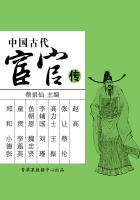About the time of the reorganization, Mrs. Eddy retired from her position of pastor of her Church, abolished the office of pastor in all branch Churches, and appointed her book, Science and Health, to be pastor-universal. Mrs. Eddy did not disconnect herself from the office entirely, when she retired, but appointed herself Pastor Emeritus. It is a misleading title, and belongs to the family of that phrase "without a creed." It advertises her as being a merely honorary official, with nothing to do, and no authority. The Czar of Russia is Emperor Emeritus on the same terms. Mrs. Eddy was Autocrat of the Church before, with limitless authority, and she kept her grip on that limitless authority when she took that fictitious title.
It is curious and interesting to note with what an unerring instinct the Pastor Emeritus has thought out and forecast all possible encroachments upon her planned autocracy, and barred the way against them, in the By-laws which she framed and copyrighted--under the guidance of the Supreme Being.
THE BOARD OF DIRECTORS
For instance, when Article I. speaks of a President and Board of Directors, you think you have discovered a formidable check upon the powers and ambitions of the honorary pastor, the ornamental pastor, the functionless pastor, the Pastor Emeritus, but it is a mistake. These great officials are of the phrase--family of the Church-Without-a-Creed and the Pastor-With-Nothing-to-Do; that is to say, of the family of Large-Names-Which-Mean-Nothing. The Board is of so little consequence that the By-laws do not state how it is chosen, nor who does it; but they do state, most definitely, that the Board cannot fill a vacancy in its number "except the candidate is approved by the Pastor Emeritus."
The "candidate." The Board cannot even proceed to an election until the Pastor Emeritus has examined the list and squelched such candidates as are not satisfactory to her.
Whether the original first Board began as the personal property of Mrs.
Eddy or not, it is foreseeable that in time, under this By-law, she would own it. Such a first Board might chafe under such a rule as that, and try to legislate it out of existence some day. But Mrs. Eddy was awake.
She foresaw that danger, and added this ingenious and effective clause:
"This By-law can neither be amended nor annulled, except by consent of Mrs. Eddy, the Pastor Emeritus"
THE PRESIDENT
The Board of Directors, or Serfs, or Ciphers, elects the President.
On these clearly worded terms: "Subject to the approval of the Pastor Emeritus."
Therefore She elects him.
A long term can invest a high official with influence and power, and make him dangerous. Mrs. Eddy reflected upon that; so she limits the President's term to a year. She has a capable commercial head, an organizing head, a head for government.
TREASURER AND CLERK
There are a Treasurer and a Clerk. They are elected by the Board of Directors. That is to say, by Mrs. Eddy.
Their terms of office expire on the first Tuesday in June of each year, "or upon the election of their successors." They must be watchfully obedient and satisfactory to her, or she will elect and install their successors with a suddenness that can be unpleasant to them. It goes without saying that the Treasurer manages the Treasury to suit Mrs. Eddy, and is in fact merely Temporary Deputy Treasurer.
Apparently the Clerk has but two duties to perform: to read messages from Mrs. Eddy to First Members assembled in solemn Council, and provide lists of candidates for Church membership. The select body entitled First Members are the aristocracy of the Mother-Church, the Charter Members, the Aborigines, a sort of stylish but unsalaried little College of Cardinals, good for show, but not indispensable. Nobody is indispensable in Mrs. Eddy's empire; she sees to that.
When the Pastor Emeritus sends a letter or message to that little Sanhedrin, it is the Clerk's "imperative duty" to read it "at the place and time specified." Otherwise, the world might come to an end. These are fine, large frills, and remind us of the ways of emperors and such.
Such do not use the penny-post, they send a gilded and painted special messenger, and he strides into the Parliament, and business comes to a sudden and solemn and awful stop; and in the impressive hush that follows, the Chief Clerk reads the document. It is his "imperative duty." If he should neglect it, his official life would end. It is the same with this Mother-Church Clerk; "if he fail to perform this important function of his office," certain majestic and unshirkable solemnities must follow: a special meeting "shall" be called; a member of the Church "shall" make formal complaint; then the Clerk "shall" be "removed from office." Complaint is sufficient, no trial is necessary.
There is something very sweet and juvenile and innocent and pretty about these little tinsel vanities, these grave apings of monarchical fuss and feathers and ceremony, here on our ostentatiously democratic soil. She is the same lady that we found in the Autobiography, who was so naively vain of all that little ancestral military riffraff that she had dug up and annexed. A person's nature never changes. What it is in childhood, it remains. Under pressure, or a change of interest, it can partially or wholly disappear from sight, and for considerable stretches of time, but nothing can ever permanently modify it, nothing can ever remove it.
BOARD OF TRUSTEES















